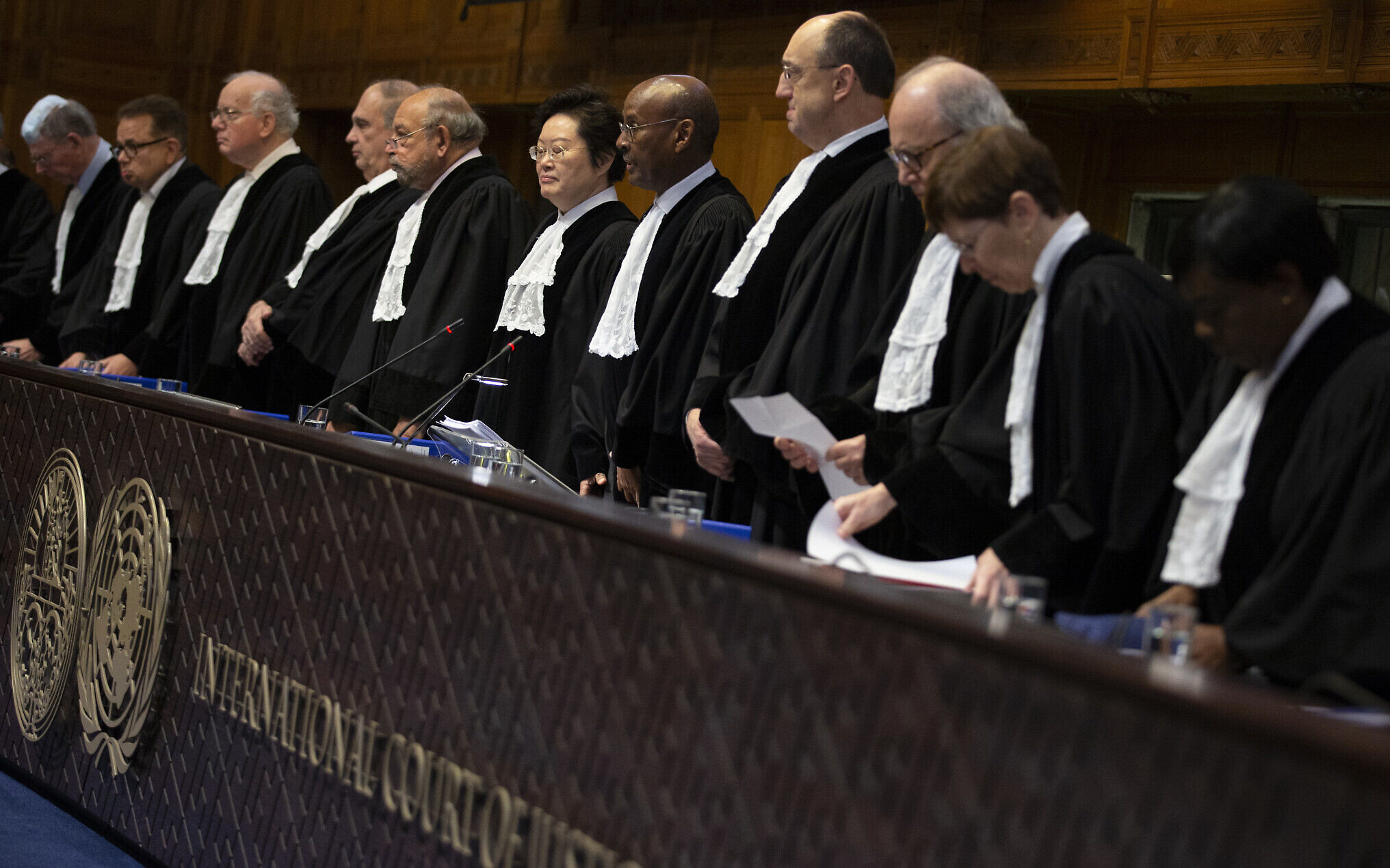Already a subscriber? Make sure to log into your account before viewing this content. You can access your account by hitting the “login” button on the top right corner. Still unable to see the content after signing in? Make sure your card on file is up-to-date.
The United States has officially imposed sanctions on four judges of the International Criminal Court (ICC) in response to their roles in authorizing investigations into alleged US war crimes and issuing arrest warrants for top Israeli officials.
Some shit you should know before you read: If you’re unaware, four ICC judges—Solomy Balungi Bossa of Uganda, Luz del Carmen Ibáñez Carranza of Peru, Reine Alapini-Gansou of Benin, and Beti Hohler of Slovenia—have been leading different judicial efforts related to highly sensitive international cases involving the United States and Israel. Judges Bossa and Ibáñez Carranza played key roles in authorizing the International Criminal Court’s investigation into alleged war crimes committed by US forces and intelligence personnel in Afghanistan, including accusations of torture and unlawful detention. Separately, Judges Alapini-Gansou and Hohler were part of the panel that approved arrest warrants for Israeli Prime Minister Benjamin Netanyahu and former Defense Minister Yoav Gallant in connection with alleged war crimes and crimes against humanity during Israel’s 2024 military operations in Gaza.

What’s going on now: In a notable development, Secretary of State Marco Rubio announced that the United States is imposing sanctions on four International Criminal Court (ICC) judges, citing their involvement in what he described as “illegitimate and baseless actions” targeting US and Israeli officials. The sanctions fall under a Trump-era executive order that authorizes punitive measures — including asset freezes and restrictions on financial dealings — against any foreign individuals involved in ICC efforts to investigate or prosecute US or allied nationals without their country’s consent. “The United States will take whatever actions we deem necessary to protect our sovereignty, that of Israel, and any other US ally from illegitimate actions by the ICC,” Rubio stated. He accused the court of politicization, adding that the ICC “falsely claims unfettered discretion to investigate nationals of the US and our allies.”
The move follows previous sanctions on ICC chief prosecutor Karim Khan and marks an expansion of the US strategy to block the court’s investigations into alleged war crimes involving its personnel and Israeli leaders. According to Rubio, these steps are meant to “deter further abuse of power” by a court that the US claims operates beyond its mandate.
The ICC, however, strongly condemned the sanctions, calling them “a clear attempt to undermine the independence of an international judicial institution.” In a formal statement, the court said, “These sanctions are not only directed at designated individuals, they also target all those who support the Court… They are aimed against innocent victims in all situations before the Court, as well as the rule of law, peace, security and the prevention of the gravest crimes that shock the conscience of humanity.”
The court further warned that the sanctions could have a chilling effect on international cooperation and accountability efforts, stating: “Targeting those working for accountability does nothing to help civilians trapped in conflict. It only emboldens those who believe they can act with impunity.”







